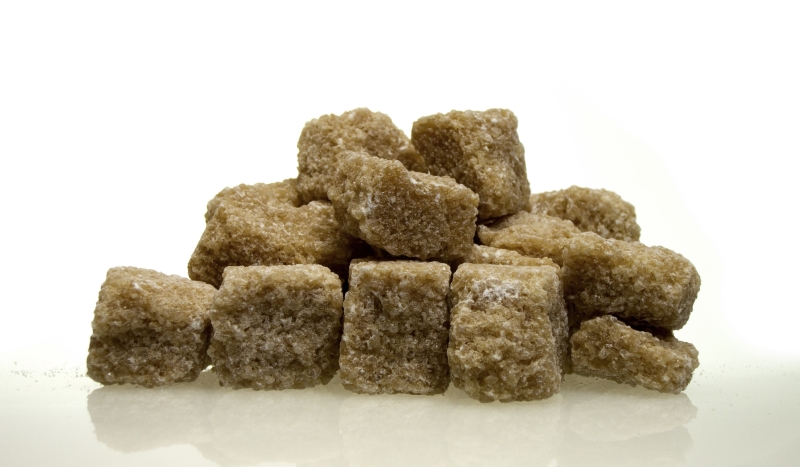
Low Sugar Foods
Eating low sugar foods and creating a low sugar diet can help you to reduce the risk of gaining weight and help you to avoid developing diabetes. This is a hot topic right now!
Where Do I Find Sugar?
Ok let's start with the basics. There's what's called refined sugar (manufactured or prepared) and natural sugars (in fruit in the form of fructose for example).
You'll be shocked at just how many foods in your local supermarket have some sort of added sugar. We're talking the added 'refined' sugars here. From the obvious granulated sugars and sweets, to dried fruit, sauces like ketchup and even fruit juices.
High sugar foods are classed as having sugars that are 'monosaccharides' (galactose, glucose, and fructose) or 'disaccharides' (sucrose, lactose, and maltose). You will also find a good deal of sugar in things like breads; prepared meals; soft drinks; cereals and of course cakes or sweet foods
Sugary Drinks
The quickest route to fillings and putting on the pounds.
Don't think this only applies to fizzy drinks. Include in the sugary category smoothies (usually around 20g - 30g per 300ml), prepared milk shakes, flavoured waters and high energy boosting drinks (up to 32g sugar per 300ml).
Sugary drinks are full of calories and can prevent you from achieving weight loss targets as well as being bad for your teeth!
Side Effects of Sugar
Sugary foods are not only full of calories, they also affect our blood sugar levels and consequently insulin production making diabetes a problem if our consumption of such foods is too high. Eating sugar produces highs and then lows.
A sugar rush is then soon afterwards accompanied by a sugar crash. As well as being bad for your energy levels, other than in the short term, consuming too much sugar makes your blood sugar levels highly unstable and causes you to feel hungry after consumption as the energy you gain from the foods is quickly used up, leaving you in need of more energy.
Foods with a Low Glycaemic Index
Foods with a low Glycaemic Index are much better for you as energy is released much more slowly and steadily over a longer duration so youll be less likely to crave food and snack to reduce hunger in between meals.
These foods include carbohydrates such as wholegrain bread, pasta and rice. These can actually help to balance blood sugar levels and prove to be a much healthier alternative to other forms of carbohydrates.
What About Artifical Sweeteners?
Where do we start with this minefield? Artificial sweeteners are things like Aspartame. Aspartame is being linked to neurological issues and other health issues such as mood swings and even some cancers. There has not been enough independent, long term research studies carried out, but there is an overwhleming amount of anecdotal evidence that can be found for avoiding them altogether.
Glycerin is also a type of artificial sweetener or 'polyol'. Often manufacturers omit glycerin in carbohydrate counts in nutritional labels on foods. Some foods which therefore claim to be low in sugar, are actually very high. This is definitely something to watch out for when purchasing and consuming products that state they are low in sugar.
In Summary
Decreasing sugar in your diet is essential to losing weight, preventing diseases like diabetes and protecting your teeth. Naturally occurring sugars in fruits are acceptable in moderation as they are healthy in other ways as they containing vitamins and minerals essential for our body processes and functions.
Try and avoid refined foods that contain a lot of sugar and consuming low sugar foods as alternatives to these are definitely much healthier options. But don't just switch to diet drinks as an alternative as there is growing evidence of the dangers of artificial sweeteners, likewise there's also growing evidence that diet drinks actually make you crave more food.
Most Popular
- › Fat Burning Exercises
- › Personal Training Workouts
- › Best Gym Equipment for Weight Loss
- › Artificial Sweeteners as a Sugar Replacement
- › Vitamins & Minerals in Foods
- › Exercise Helps Weight Loss
- › Activities for Getting Fit
- › What is Calorie Counting? A Quick Guide
- › Detox for Weight Management
- › Increase Metabolism with Exercise
You may also be interested in...
Diet Foods & Slimming Drinks
Get the facts on why diet foods and diet drinks are not the simple answer. It's more about changing the way you eat and approach your diet than just buying it all off the shelf.Sugar Busters Diet Plan
Read all about the Sugar Busters! diet plan as a way for you to lose weight. We have details on a wide range of diet plans, so check out what's best for you now.Diet Drinks - Good or Not?
Are the average diet drinks (think Coke Zero or Pepsi Max) what they seem to be? Do they help you lose weight - check out our simple information to find out the facts.Sugar In Food
Find out more about the sugar in food from our comprehensive site. With simple information about free diets and foods without beet or cane versions you need look no longerEating Low Fat Foods
Slimming.co.uk provides information on eating low fat foods and what it means for your diet and daily nutritional balance of foods.
